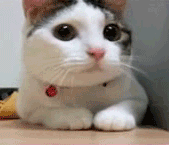- 母語
- 潮语揭阳腔
- 來自
- 潮州府揭陽縣東安里
 
|
8#
 发表于 2007-12-1 21:02
发表于 2007-12-1 21:02
回復 #7 timluo 的帖子
Thanks, Tim. That mark "R" does give me that sort of impression, that is, Douglas knew that Chinese character.
Douglas says the name for that stinking insect is chhiū-būi, or maybe colloquially chhiū-gūi. The first character clearly should be "树". Mr. Yang Jingtao tells me that in Minnan, people call this kind of insect "jiō-pūi" or "chhiŭ-gŭi"(seems already different from what Douglas has recorded down), and he proposes a character for that sound pūi/būi, i.e. 蜚. According to Emperor Kangxiˊs Dictionary,
蜚【集韻】【韻會】父沸切,音屝。【爾雅·釋蟲】蜚,蠦蜰。【疏】蜚,越之所生,其爲蟲臭惡,南方淫氣之所生也。《本草》曰:蜚,厲蟲也,然則蜚是臭惡之蟲,害人衣物,故《春秋左氏傳》有蜚不爲災,亦不書也。
According to the Middle Chinese phonology, 父沸切 indicates that the then onset of this character is a voiced consonant 奉母, while the rhyme part 沸 belongs to 止摄合口三等去声未韵, hence the naturally derivative modern sound pūi.
Some characters with low-pitch tones in modern Teochew (perhaps in Hokkien as well) will somewhat change the unvoiced labial onset to a voiced one, such as 妇bóu 蝠be̍k/bi̍k 齿巴bà 痱bùi, and this 蜚 pūi/būi seems to stand as another good example. |
Tshṳ̂-pui Avalokiteśvara Phŏ-sat pó-hō tshuân-ke-nâng jît-jît phêng-an!
蹉跎莫遣韶光老 人生唯有讀書好 學須靜也 才須學也

--------------------------------------------
潮州话八调代表字:
1胎tho 2讨thó 3退thò 4托thoh
5逃tô 6在tŏ 7袋tō 8夺tôh
潮罗特殊变体:[ɯ]=ṳ=ur;[ã]=aⁿ=an;
[aʔ8]=âh=a̍h;[ts]=ts=ch;[tsʰ]=tsh=chh |
|